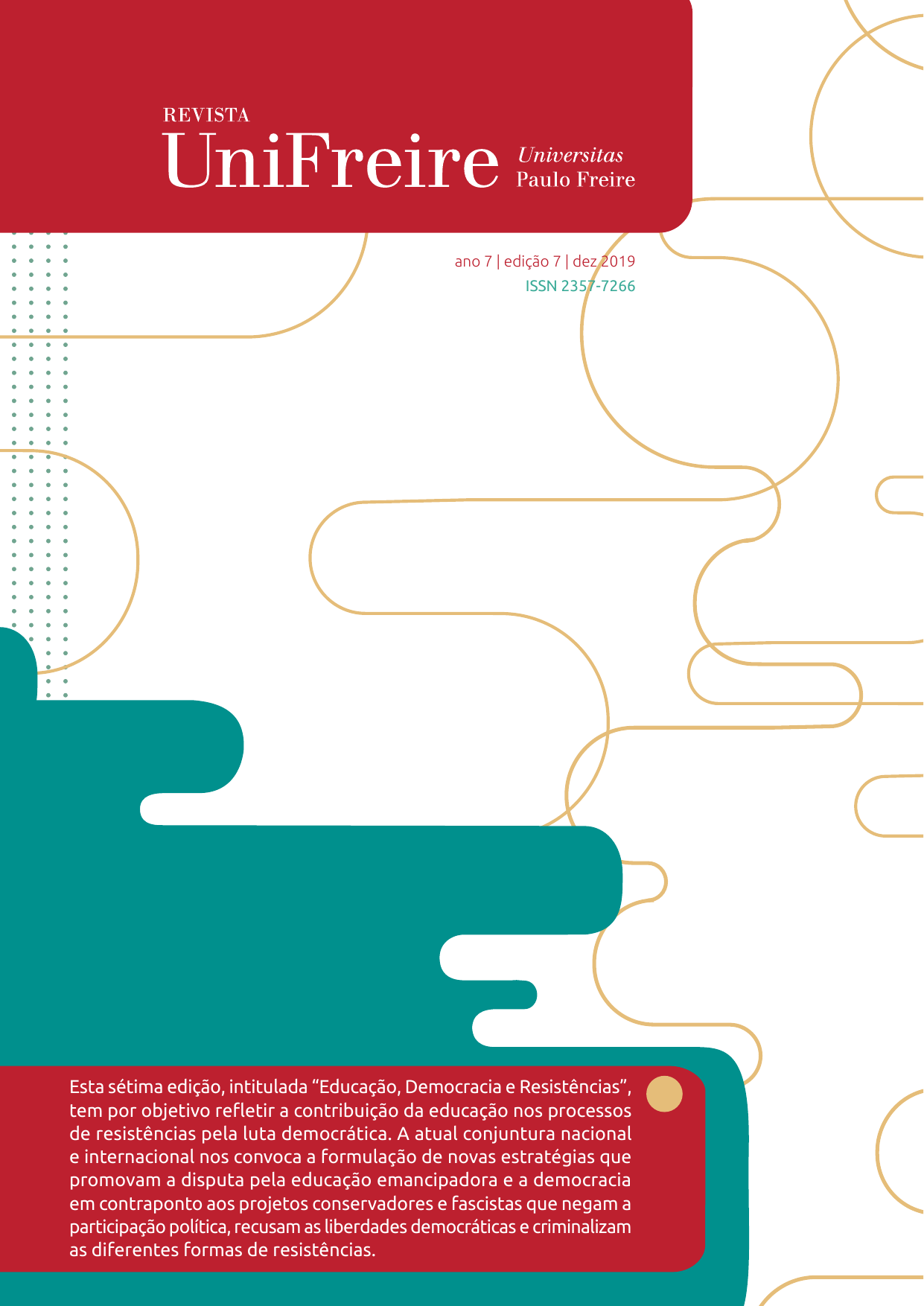A BNCC E OS DESAFIOS DA ESCOLA
Keywords:
Bncc, Curriculum, National Curriculum, Emancipatory Education, Eco‑Political‑Pedagogical Project, Intertranscultural EducationAbstract
This article presents the main features of the Common National Curriculum Base (BNCC) approved on 12/15/2017 by the National Board of Education and the challenges to be faced by public and private elementary schools in Brazil to implement it. He argues that if fulfilled as a prescription, he will testify against the autonomy of all subjects of Brazilian education and will deny the Federal Constitution dd 1988, which was called the “Citizen Constitution”. Even because of its meritocratic, individualistic, technical character, full of descriptors of competences and skills for all areas of knowledge, this BNCC is inclined to the interest of the market and will even require the adequacy of curricula of undergraduate courses from all over the country. , to this standard. The alternative for schools and educational networks will be to start from a participatory and emancipatory curriculum reorientation and, after that, to take advantage of the content of the BNCC as a reference for its new curriculum planning, after analyzing, understanding and criticizing it so as not to fall. the pitfalls and setbacks it proposes or imposes on Brazilian education.References
AGUIAR, Márcia Angela da S. E DOURADO, Luiz Fernandes. (Orgs.). A BNCC na contramão do PNE 2014-2024: avaliação e perspectivas (Revista, ANPAE, 2018, pg. 7), [Livro Eletrônico: http://www.anpae.org.br/BibliotecaVirtual/4‑Publicacoes/
BNCC‑VERSAO‑FINAL.pdf].
BRASIL, MEC. Base Nacional Comum Curricular. Brasília, MEC, 2018.
BRASIL, MEC. Constituição Federativa do Brasil. 1988. Brasília: MEC, 1989.
BRASIL, MEC. Plano Nacional de Educação 2014-2024 Lei n. 13.005, de 2014. Brasília, Presidência da República, 2016.
BRASIL, Ministério da Educação. Lei de Diretrizes e Bases da Educação Nacional. Lei n. 9.394, de 1996. Brasília, Senado, 1996.
CALEGGARI, Cesa. In: SIQUEIRA, Ivan Cláudio Pereira. (Org.). BNCC: educação infantil e ensino fundamental. São Paulo: Fundação Santilhana, 2019.
CURY, Carlos Roberto Jamil; REIS, Magali & ZANNARDI, Teodoro Adriano Costa. Base Nacional Comum Curricular: dilemas e perspectivas. São Paulo: Cortez, 2018.Custo Aluno ‑ Qualidade Inicial (CAQi) e o Custo Aluno-Qualidade (CAQ) – vide: http://www.custoalunoqualidade.org.br/o‑que‑e‑caqi‑e‑o‑caq.
DEMO, Pedro. LDB 9394/96 – Ranços e Avanços. São Paulo, Papirus, 23a ed., 1997.
DOWBOR, Ladislau. A era do capital improdutivo ‑ A nova arquitetura do poder: dominação financeira, sequestro da democracia e destruição do planeta”, (São Paulo, Autonomia Literária, 2017). Disponível no site: www.dowbor.org. PDF.
FREIRE, Paulo. Educação como prática da liberdade. 28 ed., Rio de Janeiro, Paz e Terra, 2005.
FREIRE, Paulo. Pedagogia da autonomia: saberes necessários à prática educativa. São Paulo, Paz e Terra, 1996.
PADILHA, Paulo Roberto Padilha. Currículo Intertranscultural. Novos itinerários para a educação. São Paulo, Cortez/IPF 2004. PDF disponível no site https://www.professorpadilha.com.
PADILHA, Paulo Roberto Padilha. Educar em todos os cantos: por uma educação intertranscultural. São Paulo, Cortez/IPF, 2007; Ed,L, 2012.
PADILHA, Paulo Roberto; FAVARÃO, Maria José; MORRIS, Eric & MARINE, Luiz (Orgs.). Educação para a cidadania planetária: currículo intertransdisciplinar em Osasco. São Paulo, Ed,L, 2011.
SOUZA, Jessé. A elite do atraso: da escravidão à Lava Jato. Rio de Janeiro: Leya, 2017.Outros sites e links indicados: http://www.anpae.org.br/BibliotecaVirtual/4‑Publicacoes/BNCC‑VERSAO‑FINAL.pdfhttp://www.anped.org.br/sites/default/files/resources/Of_cio_01_2015_CNE_BNCC.pdf/Acesso em 30/07/2019.


